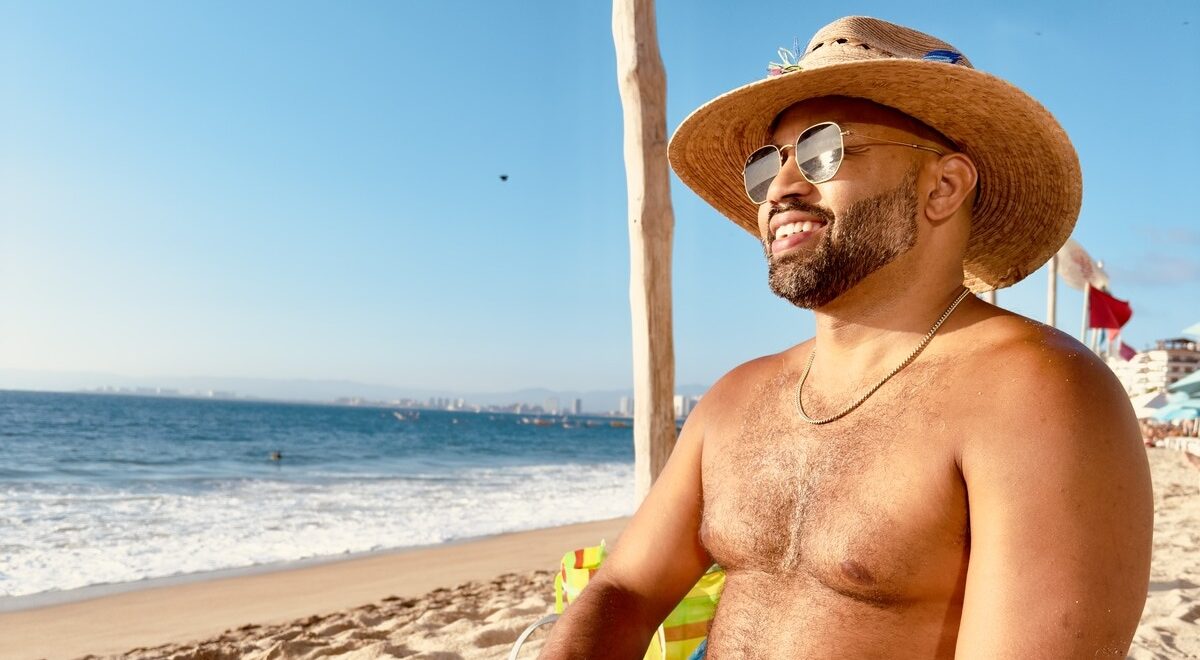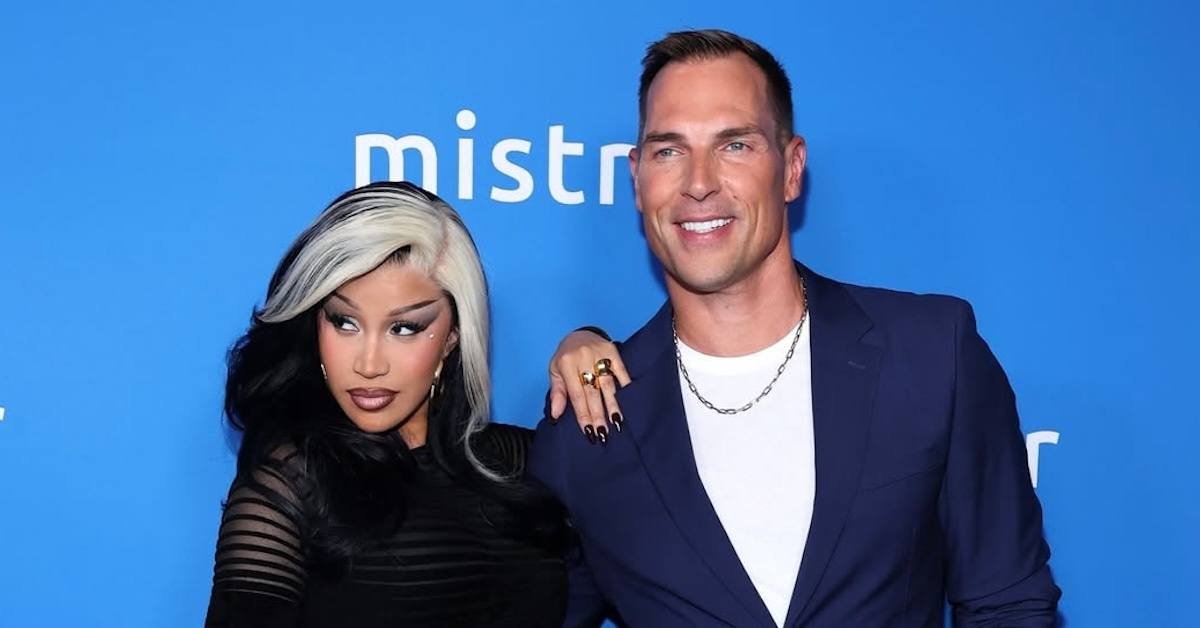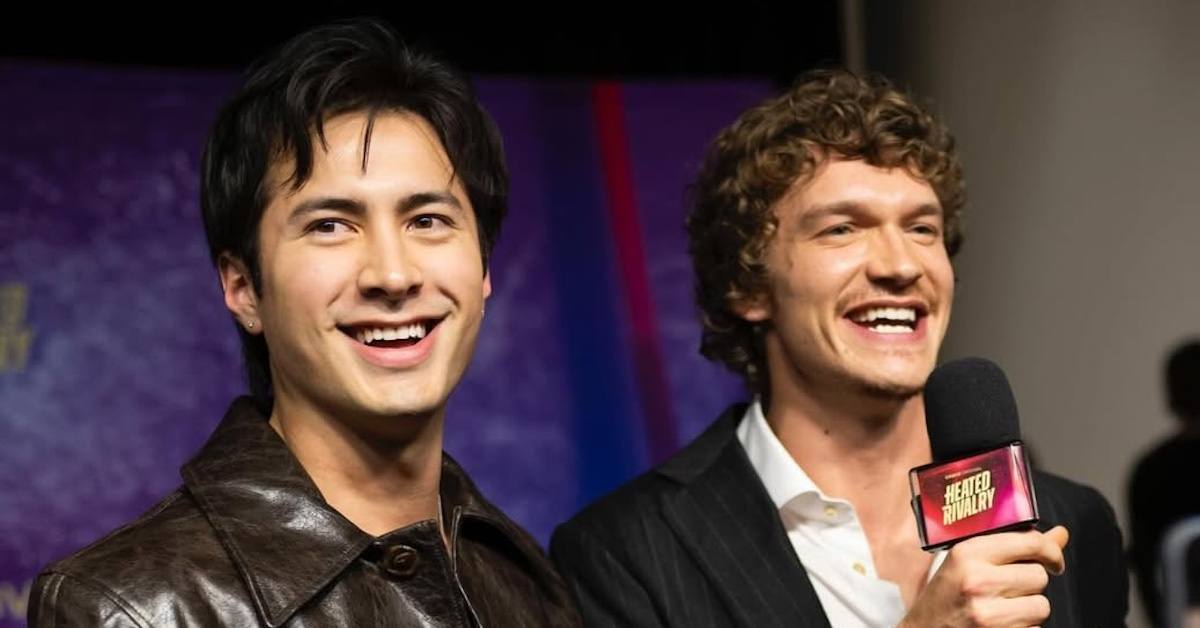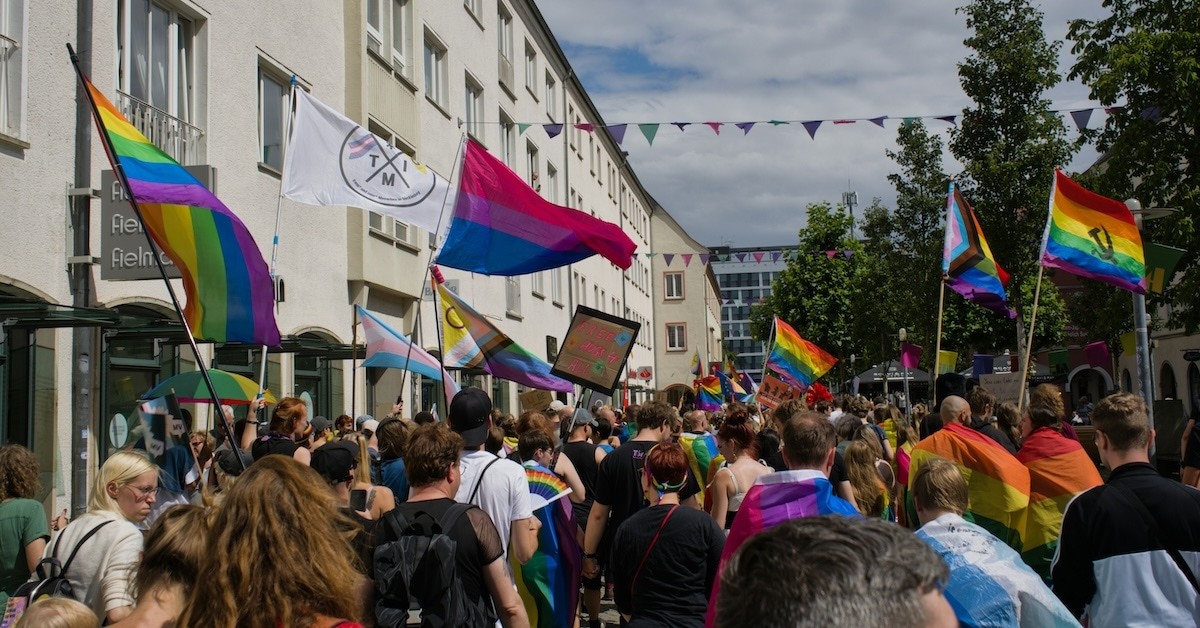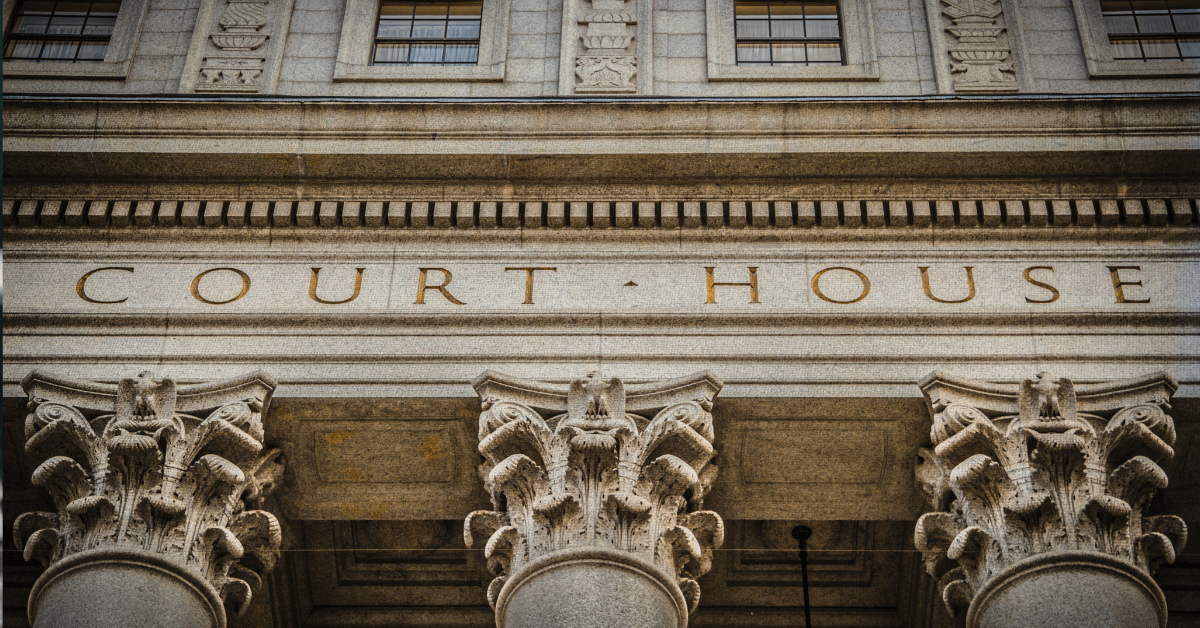BY: DM
Published 8 months ago
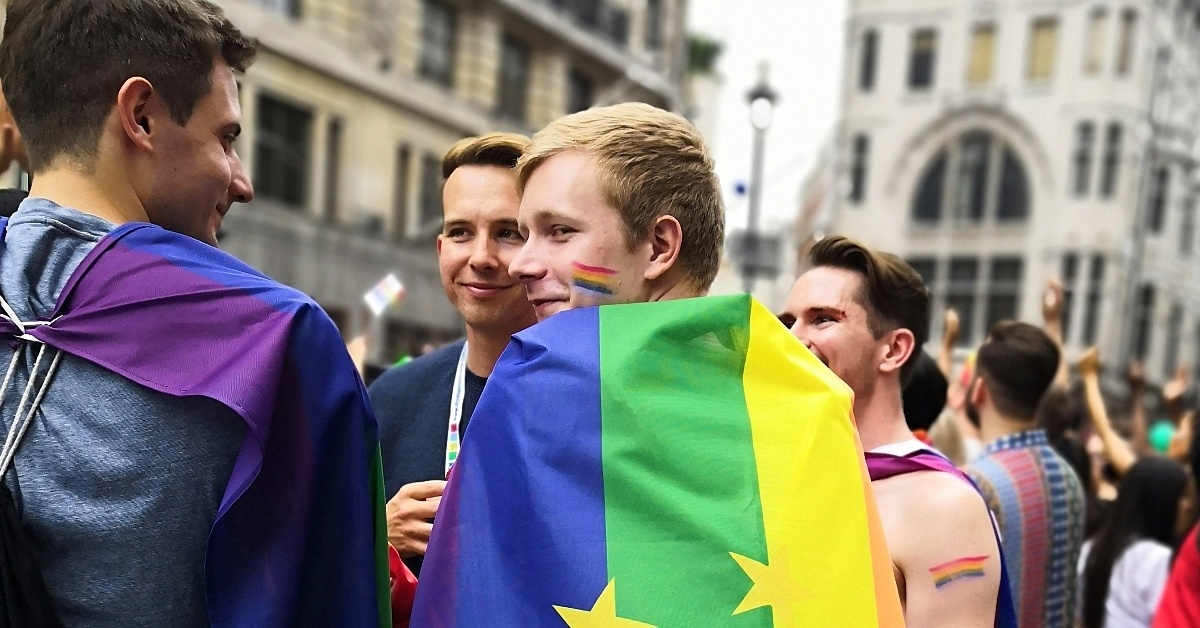
LGBTQIA+ culture has always borrowed and reshaped language from other sources. In 19th-century London, seafarers, theater performers, and street traders created Polari by blending Italian, Romani, rhyming slang, and thieves’ banter into a covert queer code. Gay men leaned hard on this secret vocabulary to mask conversations from prying eyes and undercover bobbies, giving them a private runway for gossip, flirtation, and camp humor.
Polari didn’t pop up overnight — it grew out of a mash-up of seaside chatter, theatrical patter, and street talks. Historians trace its roots to at least the 1800s, when sailors fresh off the merchant ships, Punch and Judy puppeteers, circus performers, and fairground traders swapped vocabulary. According to Cornwall Pride, entertainers developed a language called Parlyaree, which continued developing over time. Gay men later adopted the language, and it has since become a part of the culture.
Polari eventually became secret slang for gay men in Europe.

Polari consists of Italian jive, Romani, Cockney rhymes, and a bit of European slang. Polari’s core vocabulary stayed small — around 20 words — but it packed a punch. You’d “vada” (see) a friend’s “dolly old eke” (nice face), call someone “omi” (man) or “palone” (woman), or “zhoosh” (stylize) your look before hitting the queer clubs.
As the language matured, it found a home wherever outsiders congregated. London’s fish markets, backstage dressing rooms, and fairground caravans buzzed with Polari patter. According to Lancaster University, many gay men worked as stewards, waiters, and entertainers on Merchant Navy vessels — and they carried the slang aboard ship, using it to flirt or gossip without fear of exposure. Back on land, it popped up in Soho clubs and hidden pubs, cementing its reputation as the queer community’s low-key lifeline.
By the mid-20th century, Polari hit its mainstream moment on BBC radio’s “Round the Horne.” Camp duo Julian and Sandy — portrayed by Kenneth Williams and Hugh Paddick — flung lines like “Bona to vada your dolly old eke!” into prime-time comedy. Suddenly, the underground language slipped into mainstream ears, making Polari as much a pop-culture punchline as a private code.
Gay relationships were decriminalized in Europe, removing the need for Polari.
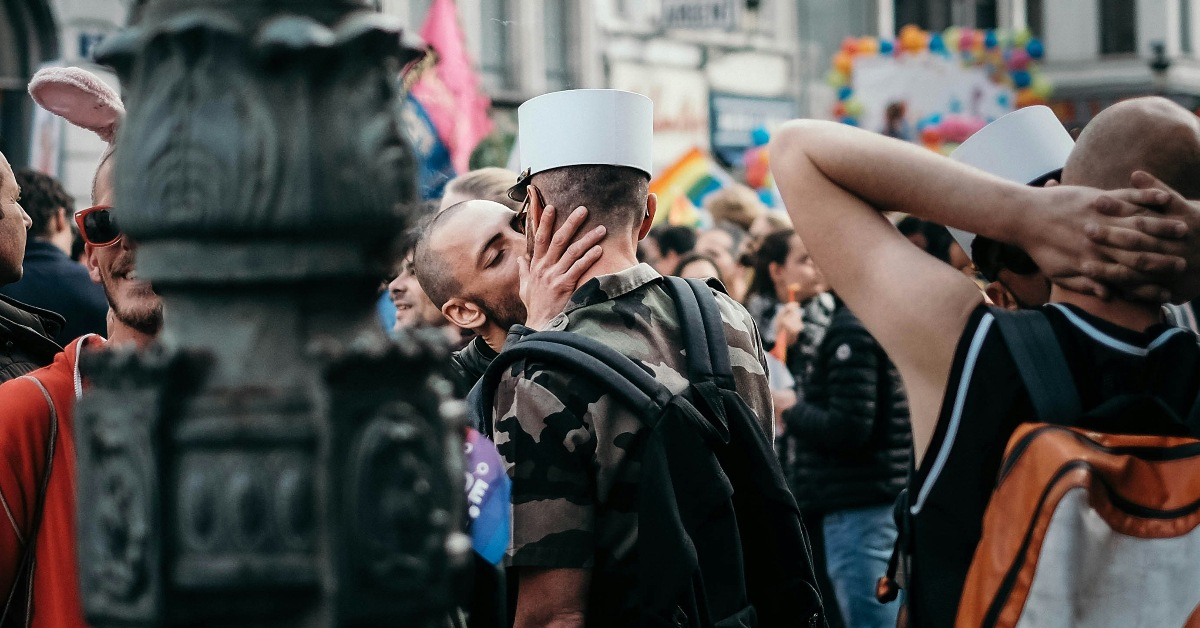
The passage of the Sexual Offences Act 1967 decriminalized male homosexuality in England and Wales, and Polari lost some of its value. By the early 1970s, many in the gay liberation movement viewed it as a relic, stuck in an era of fear and coded whispers. Its playful campiness clashed with a new push for openness and rights, and the slang gradually faded from everyday use.
However, Polari has bounced back a bit as an emblem of queer resilience and creativity. London’s LGBTQIA+ bookstore Gay’s the Word hosts Polari workshops. Additionally, literary events like the Polari Literary Salon and its annual Polari Prizes celebrate authors who sprinkle that heritage through their work.
Today, Polari does more than nod to a coded past — it offers a mirror to how marginalized groups build safe spaces through tongue-in-cheek methods. While most of us switched to text threads and private apps, Polari’s legacy lives on in academic studies and historical projects.
Do you use any secret slang in your circle that outsiders wouldn’t recognize? Comment below!
